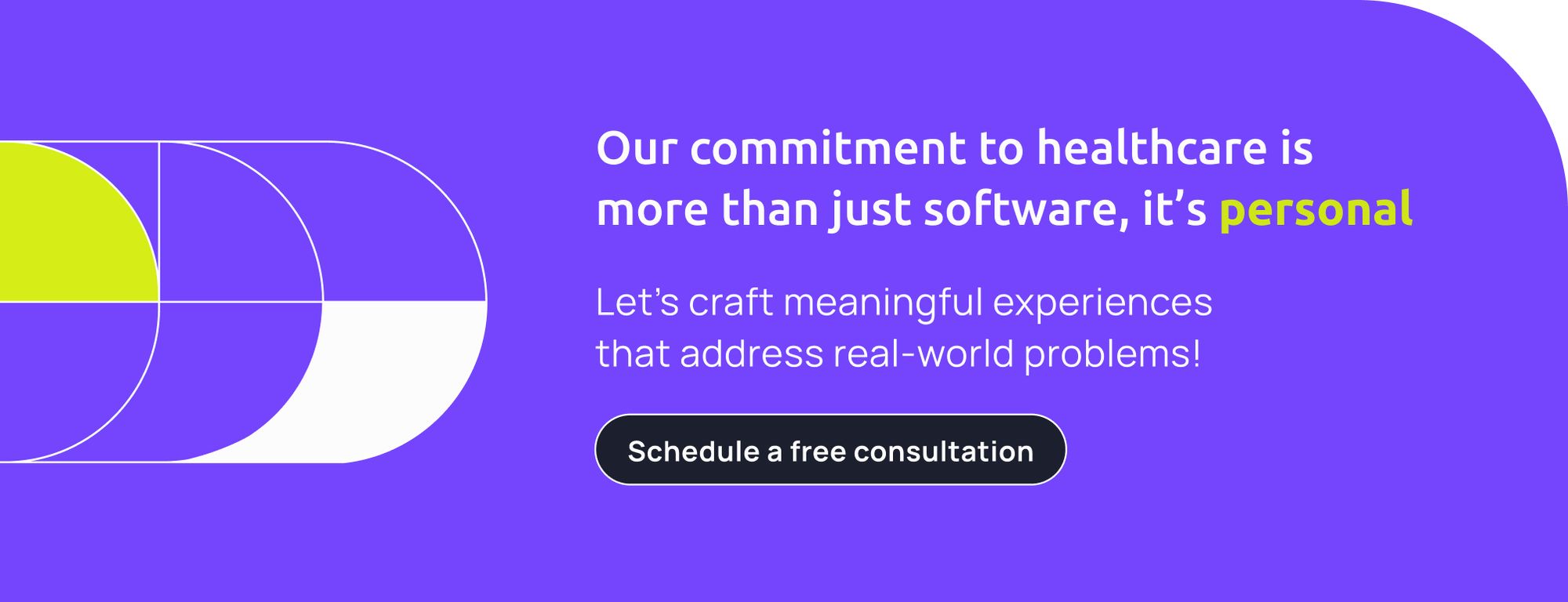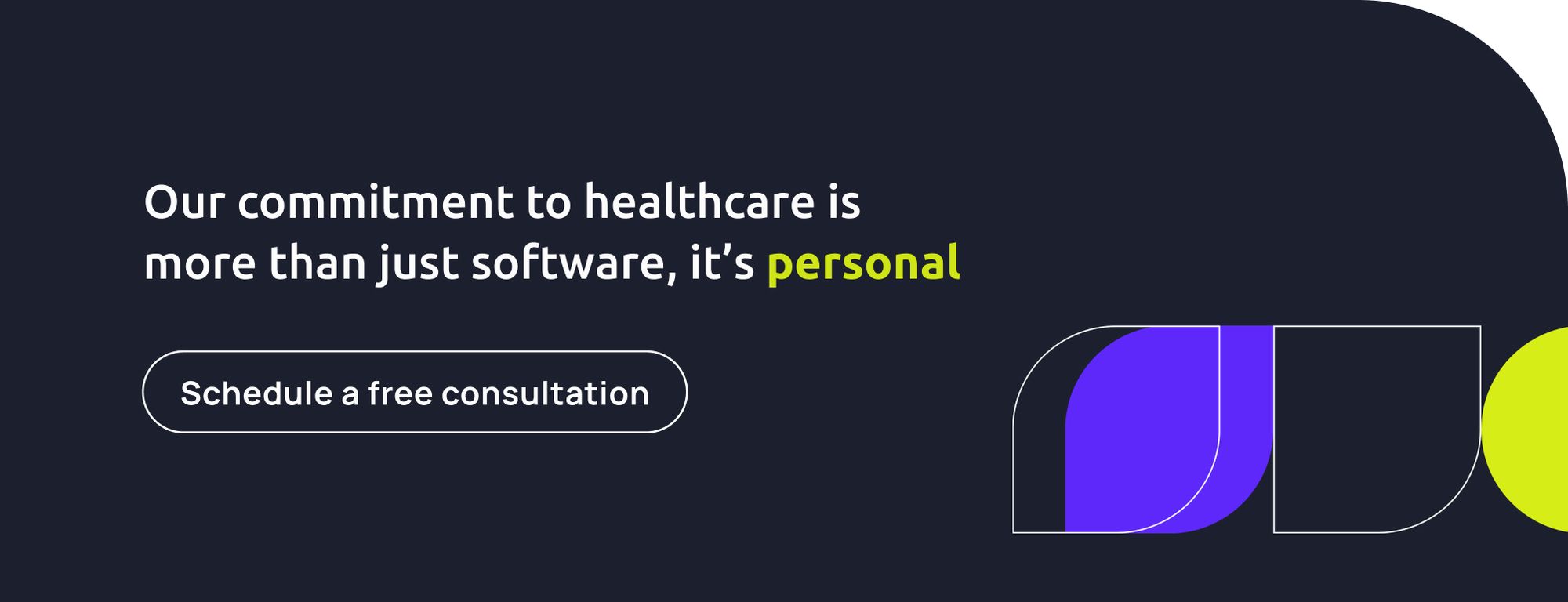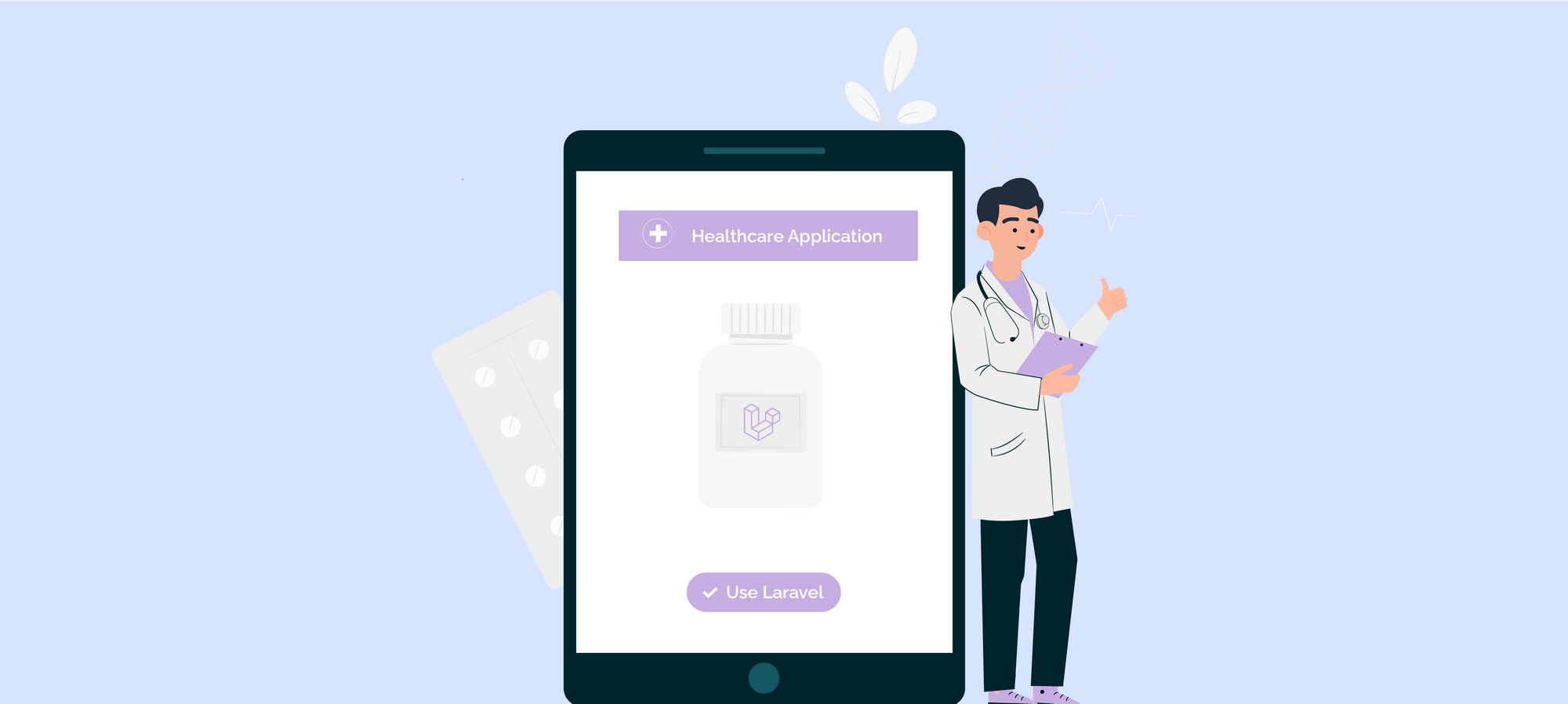Healthcare software development involves ideating and developing healthcare-related applications that improve organizations, doctors, and patients' experience.
It's an exciting moment to start a healthcare startup. The industry is booming, and the amount of opportunities to innovate and disrupt the market is insane.

Before actually starting with the development, you should decide the tech stack you will use. As you may guess, I'll try to make my point on using Laravel to develop the backend.
1- Addressing Healthcare challenges
Time-to-market: Laravel's objective is to simplify web and API development, allowing developers to focus on the product itself and not on the technology.
Innovation: Whether it's live streaming, audio transcriptions, patient communication, device integrations, or countless other features, Laravel allows you to implement them smoothly through multiple open-source packages and built-in features.
Security: By default, Laravel takes care of multiple security concerns any developer should take care of when developing applications with sensitive data: Data encryption, authentication, authorization, hashing, and more.
Data exchange: Most websites or apps require integrations to external services. Laravel does a great job handling some of them, such as transactional emails, accessing remote servers via FTP, etc. But in many other cases, we should implement a custom integration. And in these cases, Laravel allows us to create a service and then use GuzzleHttp within that service to consume 3rd party APIs.
2- HIPAA Compliance with Laravel
There are many concerns when it comes to healthcare software applications. Some examples of how Laravel can solve them are:
Security:
- Two-factor authentication: Packages like this one or using Jetstream can help you solve this feature within minutes.
- Encryption and Decryption: Laravel's encrypter uses OpenSSL to provide AES-256 and AES-128 encryption. It's highly recommended to use Laravel's facilities and not build your own.
- Blocking users after a certain number of attempts.
Access Control:
- Roles and permissions: Using laravel-permission by Spatie will help you implement complex and dynamic roles and permissions structures.
- Automatic Logoff.
Data Backup and Storage:
Laravel has built-in features to handle cloud storage and data backup. It's super easy to change the file system you are using on the fly, Amazon, Digital Ocean, Azure, Google.
3- Fastest-growing framework
Most Popular Backend Frameworks - from 2012 to 2019#backend #framework #webframework #laravel #laravelframework@taylorotwell pic.twitter.com/YeXWbpr4VA
— Mehrad (@realmehrad) October 25, 2020
Support: At this time, the Laravel community is at a point where you can be confident that you would be able to find the kind of help you need for an enterprise-level app.
Open-source packages: Thanks to its growing popularity and community, there are thousands of great open-source packages that help you solve almost any 'common' features you want to implement.
Laravel ecosystem: Apart from the packages, Laravel's ecosystem is also growing at a rapid pace. Whether it's server management, error logging, education, there is a solution for you - Anyone can review them here.


